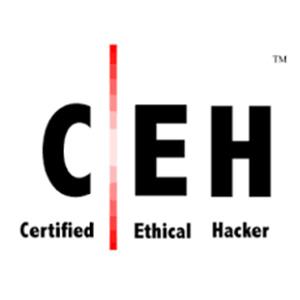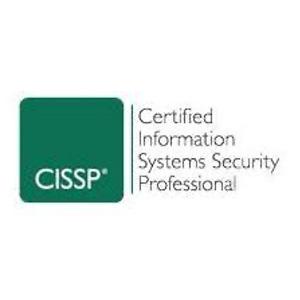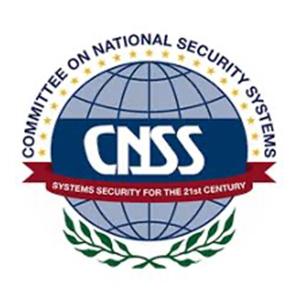Azure Penetration Tests Built for Security Programs

Migrating all or some part of your network to the Microsoft Azure cloud can create uneasiness if you are used to having all of your systems on-premises. Performing regular Azure penetration testing on your cloud environment can help ease some of those concerns. When you have created security controls around your Azure cloud instances, you want the peace of mind that comes with knowing there are not vulnerabilities you have missed that could inadvertently open the door to attackers.
When you enlist TRUE's team of expert Azure penetration testers, you can be sure that if there is a vulnerability or exploit present in Azure, they will find it. Enlist a TrueTEST so you can find and remediate weaknesses in your Azure cloud environment before attackers do. We offer Azure penetration testing services to companies in Philadelphia, PA. Our Azure cloud penetration testing experts will help you reduce your risk profile whether you use Azure exclusively or if you have it as part of a Hybrid cloud model.






Traditional On-Premise Pen Test vs. Azure Cloud Pen Test
Since you've migrated systems to the Azure cloud, you have to worry about new threats you didn't have with an on-premise network. Trust the cloud security testing experts to find those vulnerabilities– before attackers do.
Pure Cloud or Hybrid Cloud Setup
Whether your environment is entirely in the cloud, or you've migrated only certain systems, you need a penetration testing team who knows their way around both. The TrueTEST team will find your exploitable vulnerabilities, no matter where they are.
What Kind of Testing is Right for Me?
Defending your Azure cloud environment from persistent threats requires a defense-in-depth approach relying on multiple layers of security controls working in concert. Validating these controls are working and capable of detecting and resisting attacks is vital before they are evaluated by real-world threats. TRUE’s Azure penetration testing and attack simulation services leverage the MITRE ATT&CK framework to ensure your Azure cloud environment is put to the test.
Azure Penetration Testing includes
- Reconnaissance
- Vulnerability Exploitation
- Privilege Escalation
- Lateral Movement
- Command and Control
- Data Exfiltration
Web applications and mobile apps are among the most exposed elements of an organization. However, they often receive the least amount of security scrutiny. This imbalance has driven a significant increase in the growing number of large-scale, high visibility data breaches. TRUE’s application security experts can bring clarity to your application’s security through deep dive assessments designed to uncover your application’s security flaws using manual and automated security testing as well as secure SDLC focused source code audits. Guided by sound industry best practices like the OWASP Web Security Testing Project, TRUE can strengthen your application security program by evaluating your application’s key security controls, including:
- Identity management and authentication
- Access control and authorization
- Input handling and validation
- Cryptographic flaws
- Privacy issues and sensitive data leakage
- Business logic testing
- Client side and browser-based security flaws
Application Programming Interfaces (APIs) allow applications to interact and exchange data with other applications. While APIs are often obscured and not intended for direct interaction, overlooking the security of your APIs could lead to significant data breaches and data loss. API testing shares many of the same traits as web security with the addition of unique challenges. TRUE’s API security testing process focuses on these critical security elements encompassing areas such as:
- OAuth and SAML authentication
- REST, SOAP, JSON, and other API standards
- Cryptographic flaws
- Input handling and validation
- Data leakage and object access security
Today’s corporate enterprise networks have expanded beyond the traditional servers and workstations model of the past. Modern networks are a blended mix of operational technology (OT) systems and information technology (IT) systems both requiring security controls and testing. As a longtime leader in securing these diverse systems, TRUE brings a wealth of experience and discipline when evaluating ICS environments such as SCADA networks, as well as specialized IoT devices including medical devices, payment card devices, and flight safety and infotainment systems. TRUE’s ICS (Industrial Control Systems) and IoT (Internet-of-Things) security testing can include:
- Secure configuration analysis, vulnerability assessment, and threat modeling
- ICS penetration testing and attack simulation
- Hardware and software reverse engineering
- Black-box security evaluations
Testing and evaluating your user awareness training and policy and procedures is equally as important as testing your Azure environment. Scams, email phishing, and fraud have been seen in some of the highest profile breaches. Attackers know that targeting end-users often allows them to bypass perimeter IT security defense, gaining a significant advantage. To ensure your security program is ready for these threats, physical and social engineering security testing should be a component of your security testing program to ensure your end-users security controls are working effectively. TRUE’s experienced security testing team can custom tailor an engagement designed to fit your business with options such as:
- Physical security controls reviews
- Social engineering attack simulations
- Custom email phishing campaigns
- Phone vishing scenarios
Public Clouds (such as Azure) and/or Private Clouds
IT systems are migrating to the cloud at an accelerated pace; however, this rapid pace has caused security teams to struggle to keep up. New cloud technologies such as containers and cloud storage require new security strategies and security testing procedures. As a full-service Managed Security Services Provider, TRUE’s team has extensive experience in architecting, configuring, securing, evaluating and testing cloud networks, including AWS and Azure environments. TRUE’s Red Team custom tailors a security test to match your cloud environment to evaluate key technologies, including:
- Identity and access management (IAM)
- Cloud storage access controls and information data leakage, including AWS S3 buckets, serverless functions, and other overlooked cloud-specific technologies
- Container security technologies including Kubernetes and Docker
- Public and private cloud penetration testing covering cloud instances such as Azure VMs

TRUE's Expert Azure Security Team





Azure Penetration Testing
Azure Penetration testing is an all-encompassing security evaluation, which measures how well an organization’s security controls stand up to malicious threats both internal and external to your Azure cloud environment.
TRUE’s Azure Security Team, a group of experienced ethical hackers, will simulate a real attack, with the goal of helping your organization proactively uncover and address weaknesses before they are compromised by attackers.
Azure Penetration Testing Engagements
Using current frameworks and standards such as MITRE ATT&CK, TRUE emulates the tactics and techniques of real-world attackers as they compromise endpoints, escalate privileges, and move laterally within your environment. By simulating the entire attack process, you can gain confidence that your security defenses can not only stop attacks but detect, contain, and eliminate todays advanced threats.
Benefits of Using TRUE for Your Next Azure Penetration Test
Using a risk-based approach, TRUE’s Azure penetration tests provide an organization with a broad look at its most critical vulnerabilities and attack vectors. TRUE’s expert team of Azure penetration testers review multiple vulnerability data sources and evaluate each issue in terms of real-world usage in successful attacks from malicious threat actors. This approach extends beyond traditional vulnerability scoring methodologies such as CVSS and criticality scores to provide a more actionable plan to addresses real risks. Factors included in this analysis include age of vulnerability, known or suspected exploit code availability, attacker tactics and techniques, and real-world difficulty of exploitation. This process allows an organization to focus on its’s most critical targeted vulnerabilities. Correcting the identified issues will ensure many of the known attacker tactics are patched before the organization experiences an attack.
Contact Us Today!
Let us know your business needs and we will make sure to get back with you promptly!
Contact Information
-
HEADQUARTERS
6900 E. Camelback Rd., Suite 900
Scottsdale, AZ 85251 -
Oklahoma Office
1350 South Boulder Avenue, Suite 1100
Tulsa, OK 74119 -
Region Metropolitana
Chile - 480-389-3444




